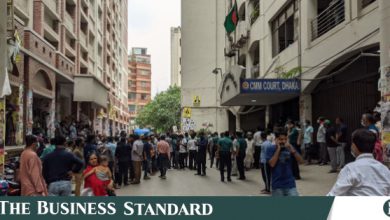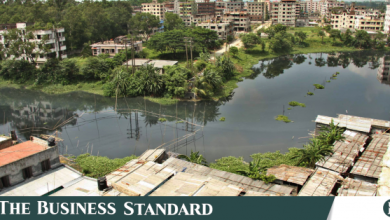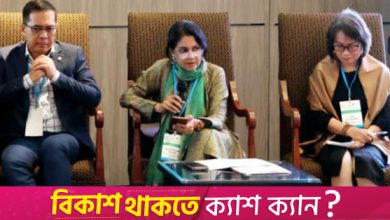The journey of Just Energy Transition in Bangladesh: Citizen’s Demand


JETnet-BD begins Just Energy Transition Network Bangladesh (JETnet-BD) marks a significant milestone in Bangladesh’s journey towards a just and sustainable energy future today. More than 70 civil society organizations (CSOs), national and international development organisations, local organisations, energy sector experts, environmentalists and media representatives across the country have collaborated to officially launch JETnet-BD.
This network will aspire to significantly contribute to Bangladesh’s just energy transition and environmental sustainability, making a significant impact. Beyond JETnet-BD’s dedicated network members, we have an advisory committee composed of energy sector experts who will offer invaluable guidance to this network.
JETnet-BD will unveil its inaurual publication, the 14-point demand ‘Just Energy Transition in Bangladesh: Citizen’s Demand’ booklet, prepared by over 150 civil society organisations and individuals.
JETnet-BD is committed to ensure a just and sustainable energy future for every citizen of the country as well as help build a climate resilient and safe world.
Just Energy Transition in Bangladesh: Citizen’s Demand
• In order to ensure a just energy transition, the ‘National Energy Transition Policy’ should be formulated by correcting the inconsistencies in the existing electricity and energy policies and plans in coordination with all the stakeholders, including local experts and civil society. The ‘National Energy Transition Policy’ will play a guiding role in the development of the power and energy sector and the adoption and implementation of plans in this regard.
• Based on the proposed ‘National Energy Transition Policy’, legal frameworks and regulations should be formulated to ensure fair energy transition.
And at the same time, legally binding constraints must be created to implement the target of converting 30% of the total energy consumed at the national level to renewable and green energy by 2030, 50% by 2040 and 100% by 2050.
• Quick Enhancement of Electricity and Energy Supply (Special Provisions) Act 2010 should be repealed or suitably amended to ensure transparency and accountability in the development of competitive and affordable markets for the power and energy sector and to create sustainable energy markets and to implement specific public procurement frameworks / policies. Similarly, any international agreement (such as the ‘Energy Charter Treaty’) that disregards state sovereignty and public interest in the power and energy sectors and protects transnational corporate interests should be avoided.
• To ensure the generation of 5,000 MW of electricity from renewable energy sources by 2025 and 10,000 MW by 2027, a policy guideline must be formulated to stop setting up any establishment of new LNG-based power plants after 2027 and abandon existing all coal-based power plants by 2027 while halting new ones in the pipeline adopting ‘no-coal policy’. By 2027, Bangladesh must ensure converting 40% of its diesel-operated irrigation pump to solar-based and shut down 60% of its HFO-based power plants including captive.
• An independent and strong regulatory body should be formed to ensure transparency and accountability in the power and energy sector. To this end, the Bangladesh Energy Regulatory Commission (BERC) Act, 2003 should be amended to transform BERC into an independent, empowered, and effective institution capable of making and implementing decisions.
• Legislation should be enacted to create a competitive investment and market framework for the advancement of the power and energy sector. Any non-competitive investments should be legally prohibited. Furthermore, to attract foreign investment in the renewable energy sector, the government must ensure a one-stop investment service with sufficient infrastructure and a conducive business environment.
Technological exchange agreements with regional and international parties should be signed and properly implemented to ensure the availability of green and renewable technologies at a fair price, based on the principles of equality cooperation, and fairness.
The Sustainable and Renewable Energy Development Authority (SREDA) should be upgraded to a separate renewable energy ministry.
• The government should make appropriate legal, institutional, and infrastructural development to fix the energy import targets within 10% of overall energy demand; and implement regional power and energy trade based on the mutual benefits among the South Asian countries.
• To achieve self-sufficiency and sovereignty in power and energy, instead of implementing only mega power plants and corporate-based models, the renewable-based model village and model community should be introduced, considering the socio-economic and geographical characteristics of Bangladesh. A just and equitable carbon tax would be imposed to phase out the fossil fuels gradually, specially to reduce air pollution. A nation-wide mapping of renewable energy (RE) potential or zoning and RE finance strategy should be adopted immediately.
• The net metering system should be made accessible for all consumers, including individuals and cooperatives, to facilitate its widespread adoption.
Additionally, modernization of infrastructure, including transmission lines is imperative.
• Acquisition of essential lands for agriculture and ecological balance in the process of establishing power plants should be halted. Before land acquisition, it is crucial to ensure the effective use of alternative sources such as rooftops and unused spaces. In case of mandatory acquisition of agricultural lands, landowners must be guaranteed a fair compensation and rehabilitation before eviction. Additionally, compensation should be ensured to the farmers and the national agricultural management, considering the loss of future income opportunities and the overall national economic loss incurring from that acquisition.
• Women’s participation in the decision-making and implementation within the power and energy sector development must be ensured. Policies should address their specific needs through inclusive formulation, planning, and execution processes. Considering the overall energy and power sector’s context, women’s active participation in operation and maintenance in the renewable sector should be emphasized.
• Research initiatives and efforts should be encouraged by providing incentives for the development of renewable energy technologies as a significant exportable sector. Based on an inclusive policy, youth should be engaged to foster the green and renewable energy sector and trained as an expert workforce by creating supportive curriculum and hands-on learning opportunities in higher education. Practical education must be included in the national curriculum.




